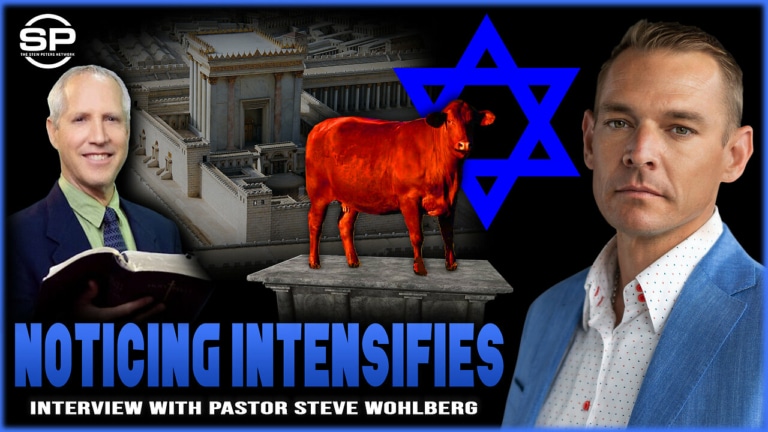The following is an exhaustive examination of every New Testament verse that mentions “the first day of the week [Sunday]”
1) Matthew 28: 1: “In the end of the Sabbath, as it began to dawn toward the first day of the week.” Here two different days are mentioned. One is “the Sabbath,” and the other is “the first day of the week,” or Sunday, which followed the Sabbath. Jesus Christ rose from the dead on Sunday, but Matthew reveals that this did not transform Sunday into the Sabbath.
2) Mark 16:1.2: “When the Sabbath was past … very early in the morning the first day of the week.” The resurrection of Jesus on Sunday morning was glorious. Super-glorious! Yet there is no evidence that this made Sunday sacred. Did the cross make Friday sacred? As in Matthew 28:1, Sunday came “when the Sabbath was past,” that is, the day after the Sabbath.
3) Mark 16:9: “Jesus was risen early the first day of the week.” Sunday is simply called “the first day of the week.” The “week” began in Genesis. God made the world in six days, then He “rested on the seventh day … blessed the seventh day and sanctified it.” Genesis 2:2, 3. God ordained “the seventh day” as His Holy Day, not “the first day of the week.
4) Luke 24: 1: The women went to the tomb on “the first day of the week” after “they rested the Sabbath day according to the commandment.” Luke 23:56. This verse is enlightening. These were Christian women who loved Jesus. They kept the Sabbath after the cross . Luke was a Gentile who wrote this about 28 years after the resurrection. Again, as Luke states, the Sabbath was still there, and these Christian women were keeping it “according to the commandment” found in Exodus 20:8-11. These verses prove that the Sabbath continues after the cross, and that the Sabbath is not Sunday.
5) John 20:1: Mary came to the tomb on “the first day of the week.” As in Matthew, Mark and Luke, John simply gives a narrative account of the resurrection of our Lord on Sunday.
6) John 20:19: On the first day of the week” (late Sunday afternoon), the disciples “were assembled” behind shut doors. Why? “For fear of the Jews.” This was not a worship service. They were scared. They had not believed the reports from the women that Jesus had risen. Mark 16:9-13. They were worried that the Jewish authorities might burst in, accuse them of stealing their Lord’s body, and then arrest them. Then Jesus revealed Himself as the risen Lord. Yet in His teaching, He did not mentioned Sunday.
7) 1 Corinthians 16:2: “Concerning the collection for the saints” (vs. 1). The context and other Scriptures reveal that Paul was raising a “collection” for needy believers in “Jerusalem” (vs. 3) during a time of famine. See Acts 11:27-30; Romans 15:25, 26. Notice carefully: On “the first day of the week” (Sunday), “let every one” (individually), “lay by him” (the original Greek literally means, “at home”), “in store” (in storage), a certain amount. The words, “by him in store,” reveal that this was to be done by the believers in their homes. The “first day of the week” was ideal for the Corinthians to look back on the previous week, examine their finances, and set aside a weekly contribution. This would then be gathered and made ready for Paul, “that there be no gatherings when I come.” Paul was going to pass through Corinth. He wanted the money ready for him to pick up. This was an emergency situation and not their regular practice, for Paul had to give them “orders” to do what they were not normally used to doing (vs. 1). Paul said nothing here about a church service or the resurrection.
8) Acts 20:6-13: This passage is often misused to support Sunday observance, but it doesn’t. This was Paul’s last meeting with a small group of believers in “Troas” (verse 6). The meeting took place at night (20:7, 8) on the “first day of the week.” Biblically, the day begins at sunset. Genesis 1.5, 8; Luke 23:54, etc. Therefore this meeting took place on a Saturday night. The New English Bible says, “On Saturday night.” That night Paul preached his farewell sermon, “ready to depart the next day [on Sunday morning].” At “daybreak” (verse 11), while Luke “sailed” (verse 15), Paul walked 25 miles “to Assos” (verse 14). Thus Paul traveled many miles that Sunday. He had been in Troas for “seven days” (vs. 6). Simple math reveals that Paul arrived on the previous Sunday, stayed for a week, and conducted his last meeting on Saturday night, which would have been right after the Sabbath. Significantly, the Book of Acts mentions “the first day of the week” only once (in Acts 20:7), yet “the Sabbath” is mentioned 11 times (see Acts 1:12; 13:14, 27, 42, 44; 15:21; 16:13; 17:2; 18:4). A careful study of Acts 20:6-13, the “Saturday Night in Troas, Sunday Travel to Assos Text” is proof that Paul did not keep Sunday holy.
Summarizing the New Testament Evidence
- Sunday is simply called, “the first day of the week” in the New Testament.
- Jesus Christ Himself never mentioned Sunday, not even one time!
- Not once is Sunday set aside as a holy day in honor of the resurrection.
- In Matthew, Mark and Luke, Sunday always comes “after the Sabbath.”
- The Holy Spirit only teaches what Jesus Christ taught. John 14:26; 16:13, 14. Because Jesus never mentioned Sunday, the Holy Spirit will not teach it.
- After His resurrection, Jesus told His disciples to teach only what He had “commanded” them. Matthew 28:20. Because Jesus never mentioned Sunday, the apostles could not have taught it.
- Sunday cannot be part of the New Covenant because it began after Jesus Christ’s blood was shed. After death, it is impossible to “add” to a covenant. Gal. 3:15.
For more information, read Truth Left Behind by Steve Wohlberg, Sunday: The Origin of Its Observance in the Christian Church, by E.J. Wagonner, or watch the fascinating 5-part TV documentary, The Seventh-day: Revelations from the Lost Pages of History, produced by LLT Productions. All three are now available from White Horse Media. www.whitehorsemedia.com. 1-800-78-BIBLE.






